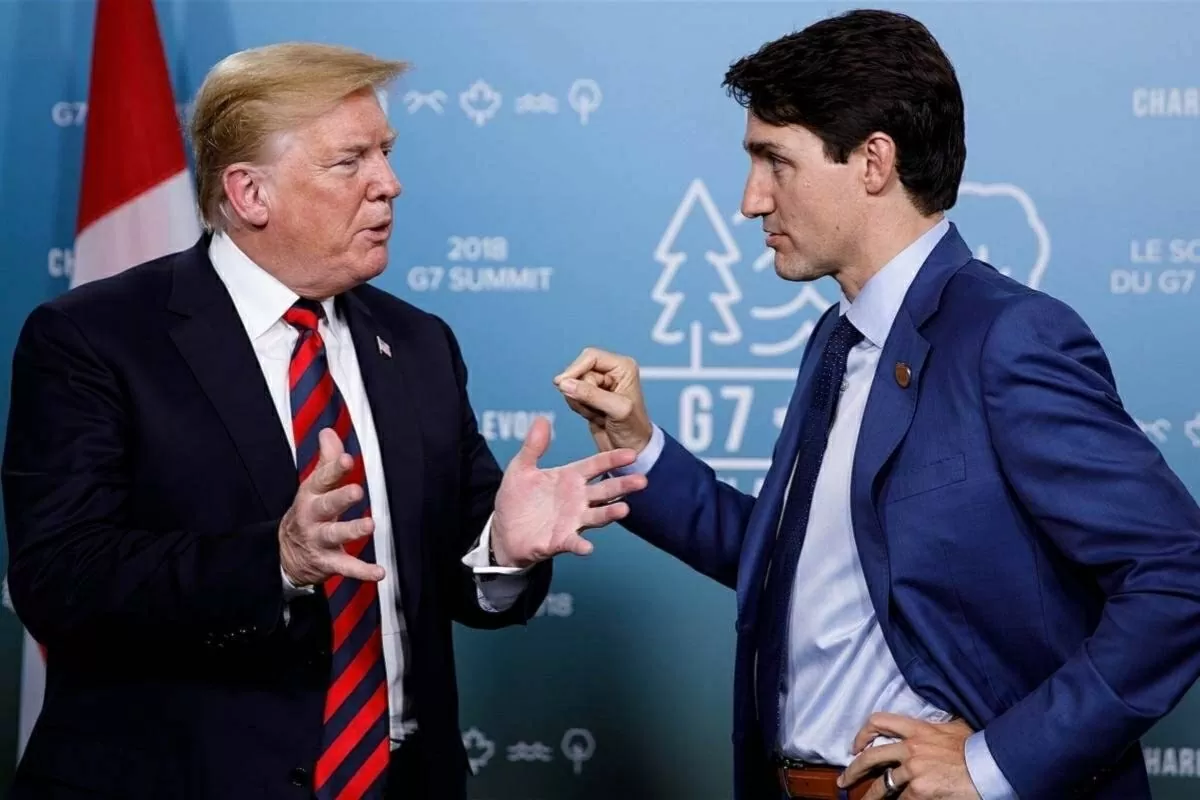On March 7, Canadian officials affirmed that they will maintain initial retaliatory tariffs on US goods, despite US President Donald Trump's announcement to postpone tariffs for another month on goods from Ottawa.
 |
| Prime Minister Justin Trudeau expects Canada and the US to be in a trade war for the 'near future,' even if there are breakthroughs for certain sectors. (Source: Maple Ridge-Pitt Meadows News) |
The firm stance reflects ongoing trade tensions between the two countries, as well as Canada's determination to push for a full elimination of what it sees as unjustified U.S. tariffs.
Specifically, Canadian Finance Minister Dominic LeBlanc announced that Ottawa will suspend the second round of tariffs on US goods until April 2, following Washington's decision to suspend tariffs on exports complying with the US-Canada-Mexico Trade Agreement (USMCA).
The second round of tariffs is expected to hit $125 billion worth of US goods, including electric vehicles, fruits and vegetables, dairy, beef, pork, electronics, steel and trucks. However, LeBlanc stressed that the suspension is conditional and depends on Washington maintaining a moratorium on reciprocal tariffs.
The North American country's initial retaliatory tariffs on $30 billion worth of US imports will remain in effect.
On the same day, Canadian Prime Minister Justin Trudeau said he expected Ottawa and Washington to be in a trade war for the "near future", even if there were "breakthroughs in certain areas".
Canada's prime minister described a recent phone call with US President Donald Trump as "frank but constructive," although sources close to the call said it was somewhat tense.
Earlier, on March 6, President Donald Trump concluded that Canada's efforts to limit illegal immigration and fentanyl into the US were insufficient and considered this one of the reasons for his tariff move.
At the same time, Mr. Trump granted a one-month exemption to the auto industry, which has links across Canada, the United States and Mexico at the request of American manufacturers.
Prime Minister Trudeau commented: "This is a welcome sign."
However, Mr. Trudeau also added that the world's largest economy still imposed tariffs and so Canada would continue to maintain response measures.
Canadian Industry Minister Francois-Philippe Champagne stressed that Ottawa will continue to take retaliatory measures even after the US President's decision to postpone tariffs.
More than half of Canada's exports to the US will still be subject to the new tariffs because they are not USMCA-compliant, he noted.
Despite President Trump's claim that the United States doesn't need Canada, the figures show a significant economic interdependence between the two countries.
Canada supplies nearly 25% of the oil consumed daily, accounts for about 60% of imported crude oil and 85% of imported electricity in the United States.
In addition, the North American country is also a major supplier of steel, aluminum, uranium, and other critical minerals and metals essential to Washington's national security.
Trade in goods and services between the two countries is about CAD 3.6 billion/day and Canada is the leading export destination for 36 US states.
Source: https://baoquocte.vn/my-xuong-nuoc-ve-thue-quan-nhung-canada-thi-khong-306726.html


























![[Photo] Nghe An: Provincial Road 543D seriously eroded due to floods](https://vphoto.vietnam.vn/thumb/1200x675/vietnam/resource/IMAGE/2025/8/5/5759d3837c26428799f6d929fa274493)








































































Comment (0)